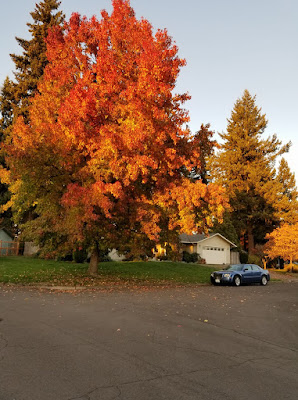Baruch Spinoza, 1632-1677
Free Thought, Enlightenment and Religion
Spinoza's Religion
The Philosophy of Baruch Spinoza
How to Live a Good Life: Advice from Wise and Respected Persons
“When
Einstein gave lectures at U.S. universities, the question students asked him
most was: Do you believe in God? And he always answered: I believe in the God
of Spinoza.
Baruch
de Spinoza was a Dutch philosopher considered one of the great rationalists of
17th century philosophy, along with Descartes.
According
to Spinoza, God would say: “Stop praying. I want you to go out into the world
and enjoy your life. I want you to sing, have fun and enjoy everything I've
made for you.
“Stop
going into those dark, cold temples that you built yourself and saying they are
my house. My house is in the mountains, in the woods, rivers, lakes, beaches.
That's where I live and there I express my love for you.
“Stop
blaming me for your miserable life; I never told you there was anything wrong
with you or that you were a sinner, or that your sexuality was a bad thing. Sex
is a gift I have given you and with which you can express your love, your
ecstasy, your joy. So don't blame me for everything that others made you
believe.
“Stop
reading alleged sacred scriptures that have nothing to do with me. If you can't
read me in a sunrise, in a landscape, in the look of your friends, in your
son's eyes—you will find me in no book!
“Stop
asking me, ‘Will you tell me how to do my job?’ Stop being so scared of me. I
do not judge you or criticize you, nor get angry or bothered. I am pure love.
“Stop
asking for forgiveness, there's nothing to forgive. If I made you, I filled you
with passions, limitations, pleasures, feelings, needs, inconsistencies, and
best of all, free will. Why would I blame you if you respond to something I put
in you? How could I punish you for being the way you are, if I'm the one who
made you? Do you think I could create a place to burn all my children who
behave badly for the rest of eternity? What kind of god would do that?
“Respect
your peers, and don't give what you don't want for yourself. All I ask is that
you pay attention in your life—alertness is your guide.
“My
beloved, this life is not a test, not a step on the way, not a rehearsal, not a
prelude to paradise. This life is the only thing here and now—and it is all you
need.
“I
have set you absolutely free, no prizes or punishments, no sins or virtues, no
one carries a marker, no one keeps a record.
You
are absolutely free to create in your life. It’s you who creates heaven or
hell.
“Live
as if there is nothing beyond this life, as if this is your only chance to
enjoy, to love, to exist. Then you will have enjoyed the opportunity I gave
you. And if there is an afterlife, rest assured that I won't ask if you behaved
right or wrong, I'll ask, ‘Did you like it? Did you have fun? What did you
enjoy the most? What did you learn?’
“Stop
believing in me; believing is assuming, guessing, imagining. I don't want you
to believe in me, I want you to believe in you. I want you to feel me in you
when you kiss your beloved, when you tuck in your little girl, when you caress
your dog, when you bathe in the sea.
“Stop
praising me. What kind of egomaniac God do you think I am? I'm bored with being
praised. I'm tired of being thanked. Feeling grateful? Prove it by taking care
of yourself, your health, your relationships, the world. Express your joy!
That's the way to praise me.
“Stop
complicating things and repeating as a parrot what you've been taught about me.
Why do you need more miracles? So many explanations?
“The
only thing for sure is that you are here, that you are alive, that this world
is full of wonders.””
Facebook Post by John Stitely,
11/30/2020
Spinoza was a Rationalist and not a Pragmatist. I do think he might agree with some of the above reinterpretations and highlights of his free thought and religious views. Epicureans might also support the above viewpoints. William James is maybe closer to Spinoza in acknowledging the role of religion in people's spiritual and social lives. God, for Spinoza, was Nature and it lacked meddling miracles and anthropomorphic personality.



















